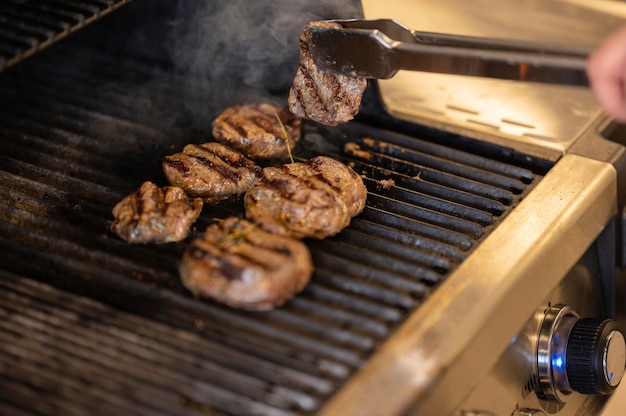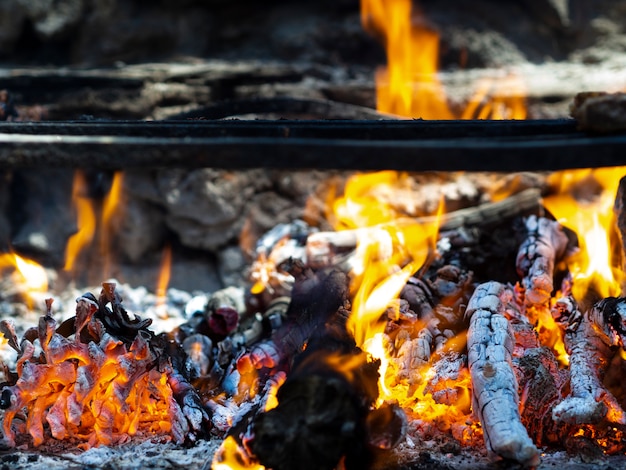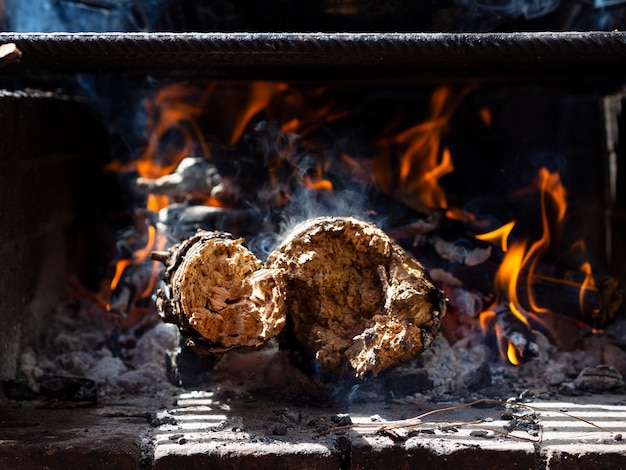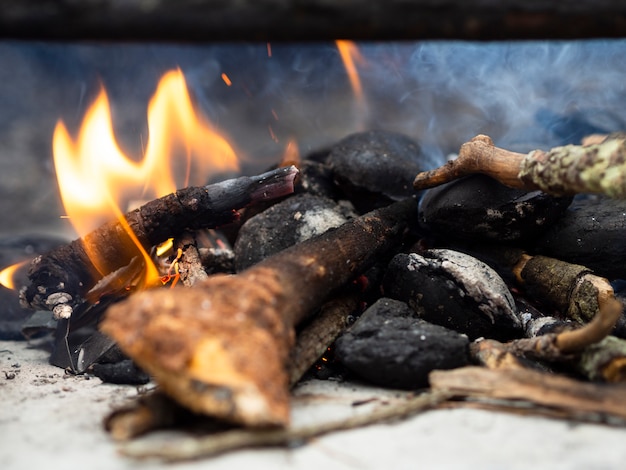Are pellet grills expensive to run?
Pellet grills have been gaining popularity among BBQ enthusiasts in recent years due to their convenience and versatility. However, many people wonder if these grills are expensive to run. In this article, we will explore the costs associated with using a pellet grill and provide insights into whether they are truly expensive or not for UK consumers.
The initial investment
When considering the cost of a pellet grill, it is essential to account for the initial investment. Pellet grills typically range in price from £300 to £1500, depending on the brand, size, and features. While this may seem steep compared to traditional charcoal grills, the long-term benefits of a pellet grill often outweigh the initial expense.
One advantage of pellet grills is their ability to maintain a constant temperature throughout the cooking process. This technology, coupled with precise temperature control, allows for more consistent results and eliminates the need to constantly monitor and adjust the grill. Additionally, pellet grills offer various cooking options, including grilling, smoking, roasting, and baking, making them a versatile outdoor cooking appliance.
Operating costs
Now let’s delve into the operating costs of pellet grills. The main ongoing cost associated with pellet grills is the purchase of wood pellets, which serve as fuel for the grill. Wood pellets are typically sold in 20-pound bags and range in price from £10 to £25, depending on the brand and quality. The average pellet consumption is around 1-2 pounds per hour, meaning that a bag of wood pellets can last for approximately 10-20 hours of continuous grilling.
While the cost of wood pellets can add up over time, it is important to note that pellet grills are generally more fuel-efficient compared to other types of grills. Their design allows for precise control over temperature and airflow, resulting in less fuel waste. Additionally, wood pellets are often made from compressed sawdust and other wood byproducts, making them a sustainable and environmentally-friendly option.
Maintenance and additional expenses
Aside from the operating costs, owners of pellet grills should also consider maintenance and potential additional expenses. Regular cleaning and maintenance of the grill’s components, such as the firepot and grease tray, are necessary to ensure optimal performance. Some grills may require occasional replacement of parts like temperature probes or igniters, which can add to the overall cost.
Moreover, certain pellet grills offer advanced features such as Wi-Fi connectivity or integrated meat probes, which can enhance the grilling experience but also come at an additional cost. It is essential to consider these potential expenses when deciding on a pellet grill model.
Overall cost-effectiveness
While pellet grills may require an initial investment and ongoing expenses, many BBQ enthusiasts find them to be cost-effective in the long run. The convenience, versatility, and consistent results they offer often outweigh the financial considerations. Moreover, the unique smoky flavor imparted by wood pellets is highly sought after by BBQ enthusiasts, making the taste of the final dish another factor to consider.
“Pellet grills provide a fantastic grilling experience with precise temperature control and versatile cooking options. Although they come with upfront and ongoing costs, their long-term benefits make them a worthwhile investment for serious BBQ lovers.”
In conclusion, while pellet grills do require an initial investment and ongoing costs for wood pellets, many UK consumers find them to be a valuable addition to their outdoor cooking arsenal. With their convenience, versatility, and ability to produce delicious, smoky flavors, pellet grills prove to be a worthwhile investment for those who appreciate the art of BBQ. So, if you’re considering buying a pellet grill, don’t let the operating costs deter you from experiencing the joys of this modern grilling technology.
Why are pellet grills so expensive?
When it comes to outdoor cooking, pellet grills have gained immense popularity. However, many people wonder why these grills come with a heftier price tag compared to traditional charcoal or gas grills. In this article, we will explore some reasons behind the higher cost of pellet grills.
1. Advanced Technology
Pellet grills are equipped with advanced technology that sets them apart from other grills. They feature a digital control panel, which allows you to set and maintain precise temperatures for consistent cooking. This technology includes features like Wi-Fi connectivity and smartphone apps, making it more convenient for users, but also adding to the overall cost.
2. Quality Construction
Pellet grills are typically built with high-quality materials, such as stainless steel, that ensure durability and longevity. The construction of these grills involves intricate designs and precision engineering, resulting in a solid and sturdy product. The use of premium materials and craftsmanship contributes to their higher price.
3. Versatility
Pellet grills offer a wide range of cooking options, including grilling, smoking, roasting, and even baking. They come with features like temperature probes, multiple cooking racks, and adjustable heat settings that allow you to cook various types of food with precision. The versatility of pellet grills makes them a desirable choice for outdoor cooking enthusiasts, but it also adds to the cost of production.
4. Fuel Source
Pellet grills use wood pellets as their fuel source. These pellets are made from compressed sawdust and are available in different flavors, adding a unique smoky taste to your food. The manufacturing process of these pellets requires specific machinery and resources, contributing to their overall cost. Additionally, the ongoing expense of purchasing wood pellets can also make pellet grills more expensive in the long run.
5. Market Demand
As pellet grills gain popularity among cooking enthusiasts, the demand for these grills increases. With higher demand, manufacturers can charge a premium for their products. Additionally, the limited number of manufacturers specializing in pellet grills further contributes to the higher price point.
“Pellet grills offer convenience, precision, and versatility, but these features come at a price.”
While the price of pellet grills may seem steep, the benefits and unique cooking experience they offer make them worth considering. If you are passionate about outdoor cooking and enjoy experimenting with different flavors and techniques, investing in a pellet grill might be a great option.
How long do pellets last in a pellet grill?
Pellet grills have become increasingly popular among barbecue enthusiasts in the UK. They offer a convenient way to cook delicious, smoky-flavored food without the hassle of traditional charcoal or gas grills. One common question that arises when using a pellet grill is how long the pellets will last.
The answer to this question depends on several factors:
1. Pellet Consumption
The rate at which pellets are consumed will vary depending on the temperature you’re cooking at, the type of pellet grill you have, and the weather conditions.
2. Cooking Temperature
Cooking at higher temperatures will require more fuel, resulting in faster pellet consumption. On average, a pellet grill can burn through 1 to 2 pounds of pellets per hour at high temperatures, while low and slow cooking can extend the burn time.
3. Pellet Grill Efficiency
The efficiency of your pellet grill can also affect how long the pellets last. Some grills are designed to use pellets more efficiently, resulting in longer burn times.
4. Weather Conditions
Extreme cold or windy conditions can increase pellet consumption as the grill may need to work harder to maintain the desired temperature.
Tip: It’s worth investing in a pellet grill with temperature control features and efficient pellet usage to extend the burn time.
On average, a 20-pound bag of pellets can provide anywhere from 10 to 20 hours of cooking time. This estimate can vary widely based on the factors mentioned above. It is always a good idea to have extra pellets on hand, especially for longer cooking sessions.
Here’s a general guideline for pellet consumption:
| Cooking Temperature | Pellet Consumption (per hour) |
|---|---|
| Low & Slow (225-250°F) | 0.5 – 1 pound |
| Moderate (300-350°F) | 1 – 1.5 pounds |
| High (400-450°F) | 1.5 – 2 pounds |
Remember:
- Always store your pellets in a dry location to prevent them from absorbing moisture, which can affect their performance.
- Consider using a pellet grill with a hopper capacity that matches your cooking needs to minimize refilling during longer cooking sessions.
- Experiment with different pellet blends and flavors to add variety to your cooking.
By understanding the factors that affect pellet consumption in a pellet grill, you can better plan and enjoy your outdoor cooking experience while savoring the smoky flavors.
Which is Cheaper: Pellet or Propane?
When it comes to heating your home, finding an affordable and efficient fuel source is crucial. In the UK, two popular options for heating are pellets and propane. Both have their advantages and disadvantages, but which one is cheaper in the long run? Let’s compare.
Pellet Fuel
Pellet fuel is made from compressed organic materials such as wood waste or agricultural residues. It is considered a renewable energy source and has gained popularity in recent years due to its environmental benefits. In terms of cost, pellets are generally cheaper than other fuel sources like oil or gas. The price of pellets can vary depending on the region and demand, but they tend to be more stable in price compared to other fuels.
Advantages of Pellet Fuel:
- Renewable and environmentally friendly
- Stable pricing
- Efficient burning with minimal waste
Propane Gas
Propane gas is a popular choice for heating and cooking in many homes across the UK. It is a byproduct of crude oil refining and natural gas processing. Propane can be used for a variety of applications, including heating, hot water, and even powering generators. However, propane prices are subject to fluctuations due to factors such as supply and demand, which can make it less predictable in terms of cost.
Advantages of Propane Gas:
- High energy content
- Versatile usage
- Readily available
“The cost comparison between pellet and propane largely depends on the current market conditions and individual consumption patterns.” – Energy Expert
In general, the cost of pellet fuel tends to be more stable compared to propane gas. However, it’s important to consider other factors such as the initial investment required for a pellet stove or boiler system. Additionally, individual consumption patterns and energy efficiency play a significant role in determining the overall cost.
Is food cooked on a pellet grill healthy?
Cooking on a pellet grill has gained popularity in recent years, offering an alternative way to prepare delicious meals. But is the food cooked on a pellet grill healthy? Let’s explore the benefits and considerations of using a pellet grill for your cooking needs.
The Advantage of Pellet Grills
Pellet grills use wood pellets as fuel, providing a unique smoky flavor to your food. Unlike traditional charcoal grills, pellet grills offer precise temperature control, allowing you to cook your food evenly. The indirect heat produced by the pellets helps retain moisture in the meat, resulting in tender and juicy dishes.
Additionally, pellet grills have an automated system that feeds the pellets into the fire, maintaining a consistent temperature throughout the cooking process. This eliminates the need for constant monitoring, giving you more time to relax and enjoy.
Healthy Cooking with Pellet Grills
Cooking on a pellet grill can be a healthier option compared to other cooking methods. Here are a few reasons why:
- Reduced Fat: The indirect cooking style of pellet grills allows excess fat to drip away from the food, resulting in leaner and healthier meals.
- Enhanced Flavor: The natural smoky flavor from the wood pellets reduces the need for additional seasonings and sauces, helping to lower sodium and sugar content in your dishes.
- Cooking Versatility: Pellet grills are not limited to grilling alone. They can also be used for smoking, roasting, baking, and even braising, providing a wide range of cooking options for healthier meal preparations.
Using a pellet grill can help you achieve a delicious and flavorful meal without compromising on healthiness.
Tips for Healthier Cooking
While pellet grills offer many health benefits, it’s essential to keep a few things in mind:
- Select Lean Cuts: Opt for lean cuts of meat to keep your dishes lower in fat content.
- Control Portion Sizes: Be mindful of portion sizes to maintain a balanced diet.
- Marinate and Season Naturally: Choose healthier marinades and seasonings to avoid excess calories, sodium, and sugars.
- Accompany with Healthy Sides: Pair your pellet-grilled meats with plenty of vegetables and whole grains for a well-rounded meal.
Overall, cooking on a pellet grill can offer a healthy and flavorful way to prepare your meals. With the right ingredients and cooking techniques, you can enjoy delicious dishes while maintaining a balanced diet.
Conclusion
While both pellet fuel and propane gas have their merits, in terms of long-term affordability, pellet fuel tends to be the cheaper option due to its stable pricing. However, it is crucial to carefully evaluate your specific heating needs, local availability, and pricing trends before making a decision. Ultimately, the choice between pellet and propane depends on various factors, including environmental considerations, convenience, and budget.



